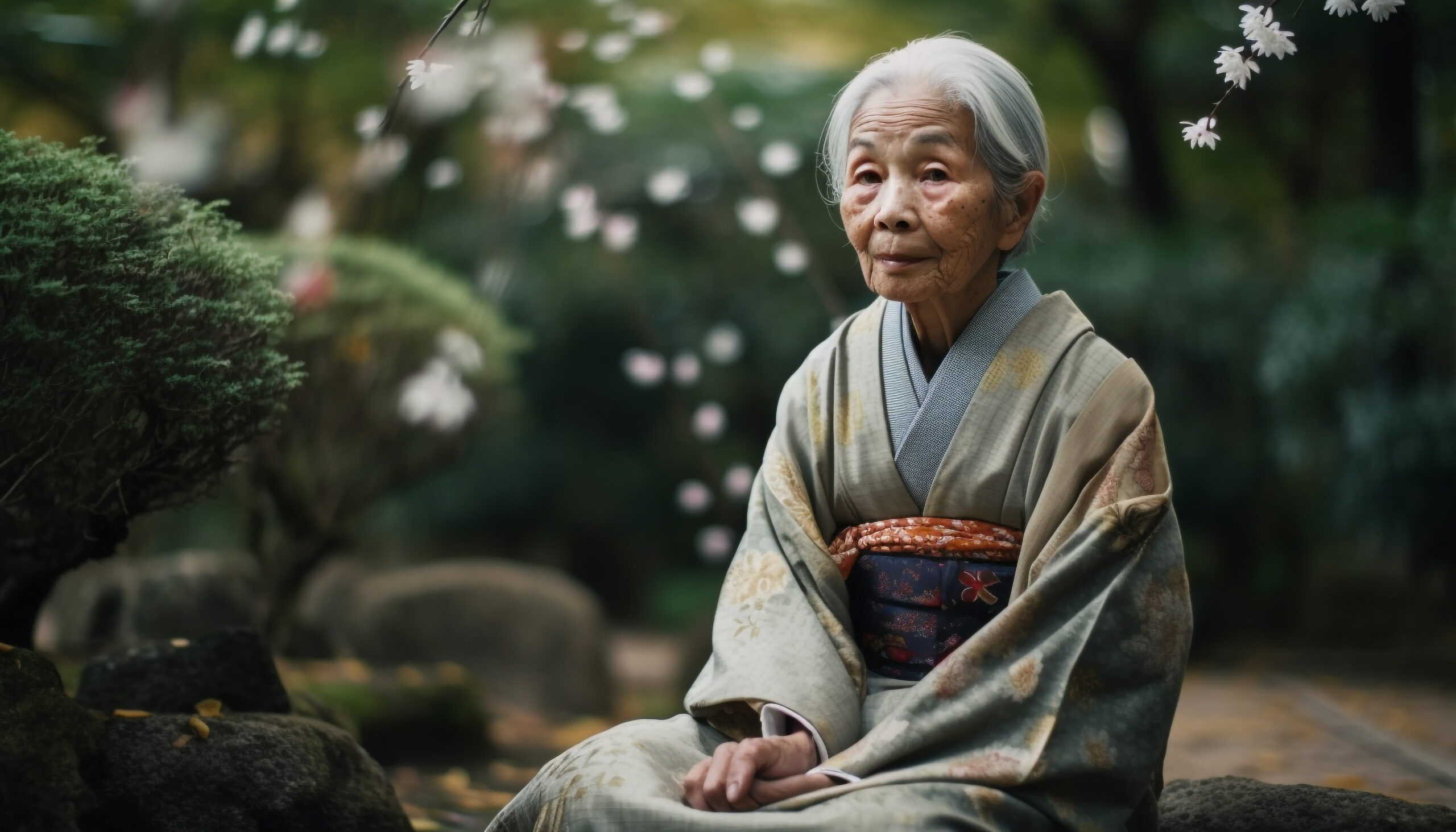In a remarkable feat that underscores its robust healthcare system and healthy lifestyle choices, Japan has clinched the second spot globally in life expectancy rates. This achievement highlights the nation’s unwavering commitment to public health and preventative care, propelling it ahead of many developed nations. As countries around the world grapple with health crises and aging populations, Japan’s silver position in the global longevity race offers invaluable insights into creating societies where citizens lead longer, healthier lives.
Japan Secures Silver in Global Longevity Race
In the fiercely competitive arena of global health, Japan has emerged victorious, securing a prestigious second place in the global longevity race. This remarkable achievement is a testament to the country’s advanced healthcare system, meticulous attention to diet, and societal respect for the elderly. With citizens enjoying some of the longest lifespans on the planet, Japan’s silver-medal status is not just a national triumph but a beacon of hope for nations striving to enhance the well-being and lifespan of their populations.
Life Expectancy: Japan’s Proud Second Place
Japan’s positioning as the runner-up in global life expectancy is a source of national pride and global admiration. This proud second place is not an overnight success but the result of decades of concerted efforts in healthcare innovation, public health policies, and community support systems. Japanese citizens benefit from a harmonious blend of traditional practices and cutting-edge medical technology, ensuring a quality of life that is enviable by international standards.
Behind the Numbers: Japan’s Ageing Triumph
The statistics revealing Japan’s high life expectancy are impressive, but the real story lies behind these numbers. Japan’s ageing triumph is a multifaceted saga of cultural, environmental, and governmental factors working in synergy. From the widespread practice of Ikigai, a sense of purpose in life, to the meticulous care afforded to the elderly, Japan’s success is deeply rooted in the fabric of its society. Moreover, preventative healthcare measures and a public health insurance system that covers all citizens have played pivotal roles in achieving these enviable longevity rates.
Global Life Expectancy: Japan Shines at #2
Globally, life expectancy rates vary dramatically, with many countries struggling to combat health issues and improve the lifespan of their citizens. Against this backdrop, Japan shines bright at the number two spot, showcasing what can be achieved with a comprehensive approach to health and well-being. This shining position is not merely a statistic but a reflection of Japan’s relentless pursuit of excellence in healthcare and social welfare, setting a benchmark for the rest of the world.
Japan Outpaces Most in Global Longevity
Japan’s exceptional standing in global longevity is a clear indication that it outpaces most countries in fostering healthy, long-lived populations. This distinction is achieved through a combination of factors, including a healthcare system that emphasizes early detection and treatment, a diet rich in fresh and minimally processed foods, and a society that values and supports its elderly population. The result is a nation where living beyond 80 or even 90 is not the exception but increasingly the norm.
Why Japan Ranks High in Life Expectancy
The question of why Japan ranks so high in life expectancy is answered through a deep dive into the country’s lifestyle, healthcare, and social practices. A diet low in saturated fats and high in vegetables and fish, widespread physical activity integrated into daily life, and a healthcare system focused on preventative care all contribute to the nation’s impressive lifespan statistics. Additionally, Japan’s cultural emphasis on harmony, community, and respect for the elderly creates an environment conducive to healthy aging.
Unveiling the Secrets to Japan’s Long Life
The secrets behind Japan’s long life expectancy are multifaceted and deeply ingrained in the nation’s culture. From the dietary staples of rice, fish, and vegetables to the active lifestyle encouraged across all age groups, Japan’s approach to health is holistic. Furthermore, the social fabric of Japan, which fosters strong community ties and social support, plays an essential role in ensuring that the elderly live their later years with dignity and purpose, contributing to their overall well-being and longevity.
Japan’s Journey to the Top of Longevity
Japan’s ascent to the top of the longevity charts has been a deliberate journey marked by innovation, tradition, and policy. From the post-war era to the present day, Japan has transformed its healthcare system to one of the most efficient in the world, prioritizing universal access and preventive care. Simultaneously, the country has preserved and promoted traditional health practices, seamlessly integrating them with modern medicine. This journey reflects a societal commitment to health that is unparalleled, demonstrating that longevity is a collective achievement rather than an individual endeavor.
Exploring Japan’s Age-Defying Success
Exploring Japan’s age-defying success reveals a society that places a high value on health, community, and well-being. The government’s proactive stance on health education and investment in medical research has led to early detection and treatment of diseases, significantly reducing mortality rates. Furthermore, the cultural norms surrounding food, such as portion control and the emphasis on seasonal, fresh ingredients, contribute to a balanced diet that supports a long and healthy life.
The Factors Behind Japan’s Life Expectancy
The factors contributing to Japan’s impressive life expectancy rates are diverse, ranging from genetic predispositions to environmental and societal influences. The Japanese diet, renowned for its nutritional benefits, combined with a healthcare system that emphasizes preventative measures, sets the foundation for a healthy populace. Additionally, the deep-seated cultural practices that honor and care for the elderly ensure that the aging population remains active and integrated within the community, further boosting the nation’s overall life expectancy.
Life Longevity: Japan’s Recipe for Success
Japan’s recipe for success in life longevity is a complex blend of healthcare, diet, exercise, and social cohesion. The nation’s healthcare system is accessible and efficient, focusing on preventative measures and regular check-ups. The traditional Japanese diet, low in fat and rich in antioxidants, plays a critical role, while regular exercise, often integrated into daily routines, keeps the population physically active. Equally important is the social aspect, where respect for the elderly and strong community networks support mental and emotional health, contributing to Japan’s enviable longevity rates.
Japan’s Silver Streak in Global Health Rankings
Japan’s silver streak in global health rankings is a shining example of what is possible when a nation prioritizes the health and well-being of its citizens. As the world looks to Japan, it sees a society that values preventative care, respects its elderly, and embraces a lifestyle that is both traditional and innovative. Japan’s success in securing the second spot in global life expectancy is not just a national achievement but a global inspiration, offering lessons in health, happiness, and longevity for all.
Japan’s remarkable second-place ranking in global life expectancy rates is a testament to the nation’s holistic approach to health and well-being. Through a combination of advanced healthcare, nutritional diets, physical activity, and strong social support systems, Japan has paved the way for a future where longevity and quality of life go hand in hand. As countries worldwide strive to improve the health and longevity of their populations, Japan’s silver medal in the global longevity race stands as a beacon of success, proving that with the right policies, practices, and community spirit, living a long and healthy life is an achievable goal for all.

